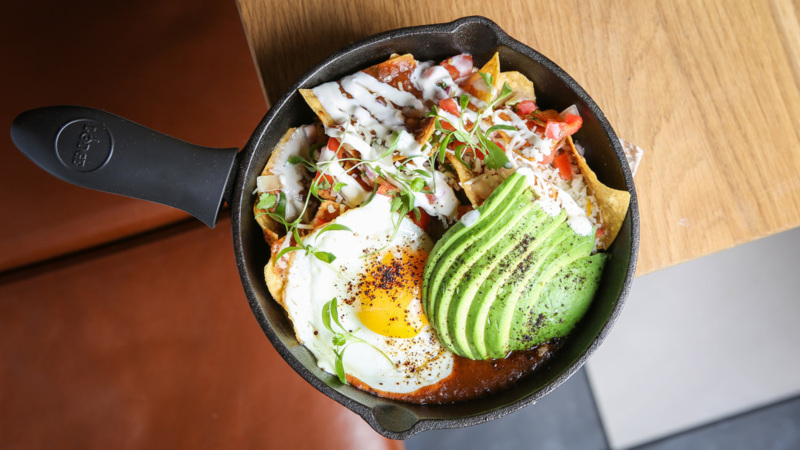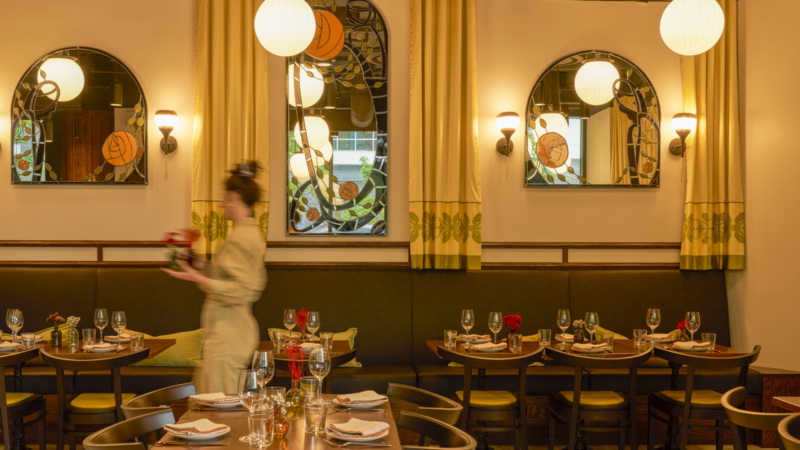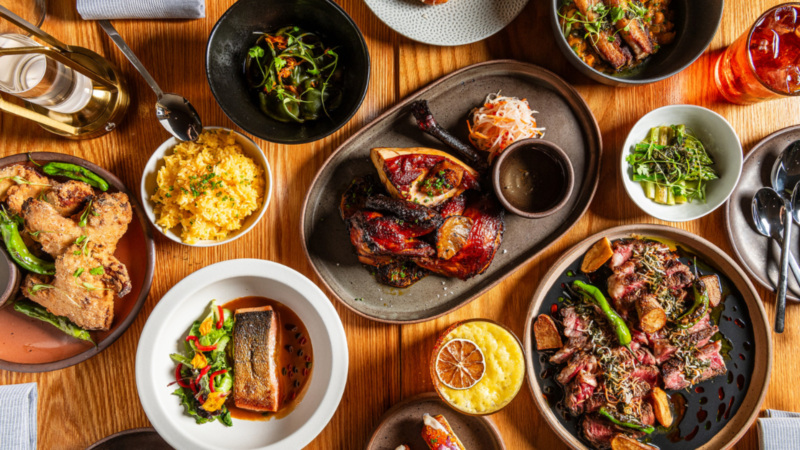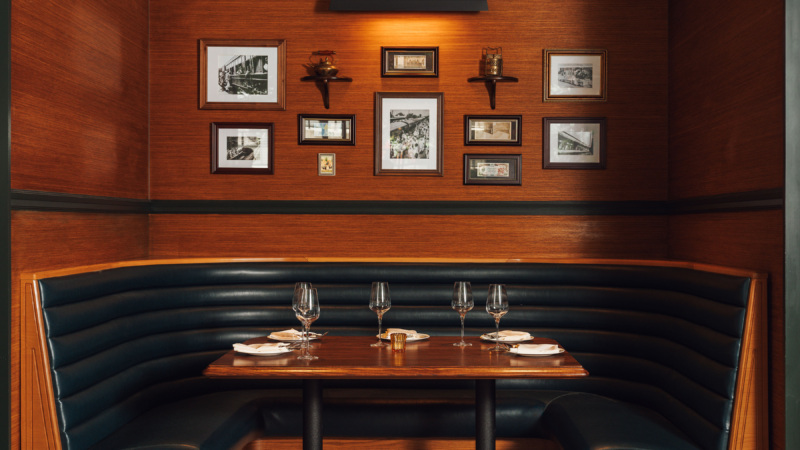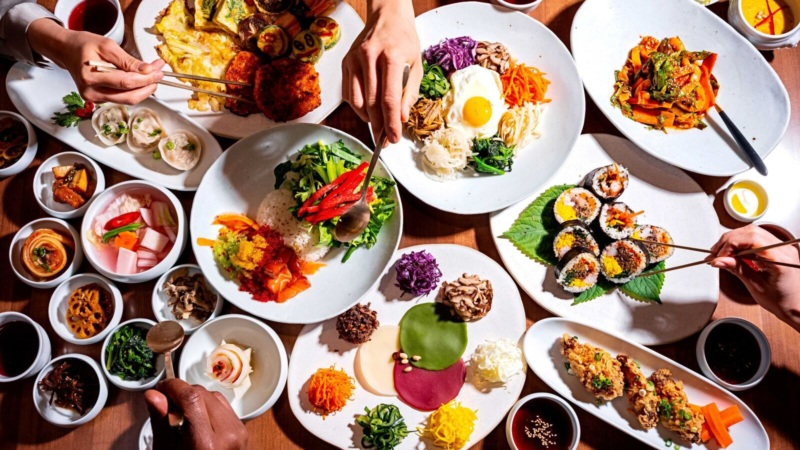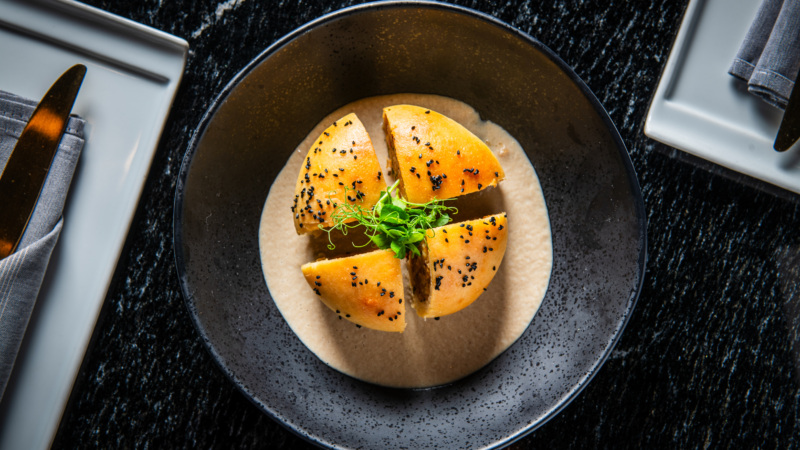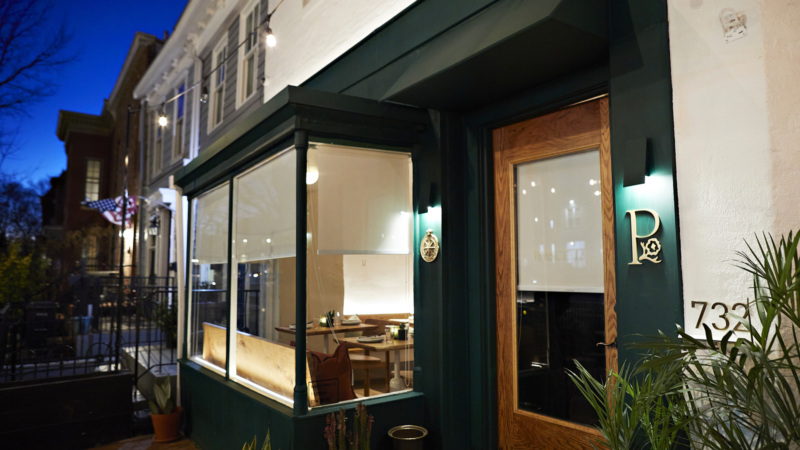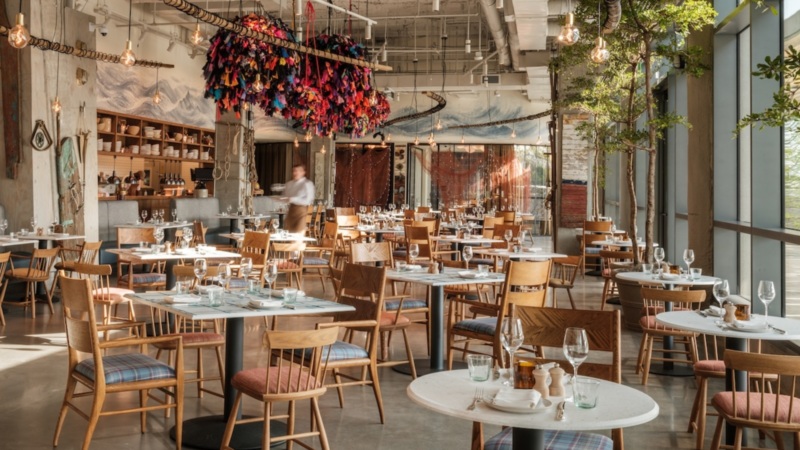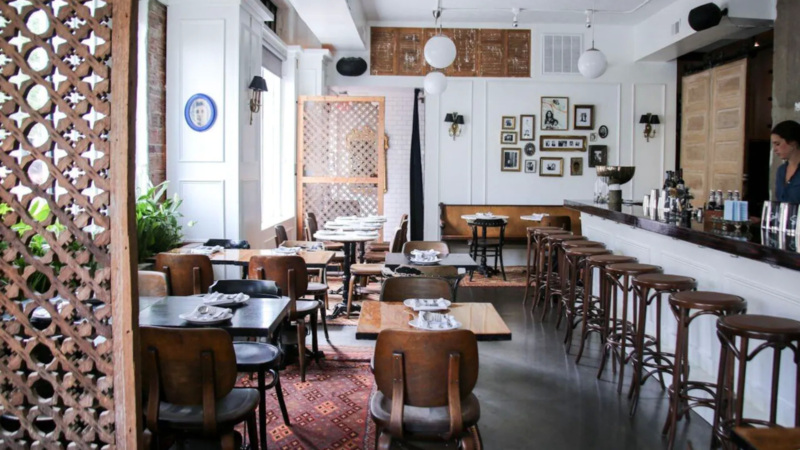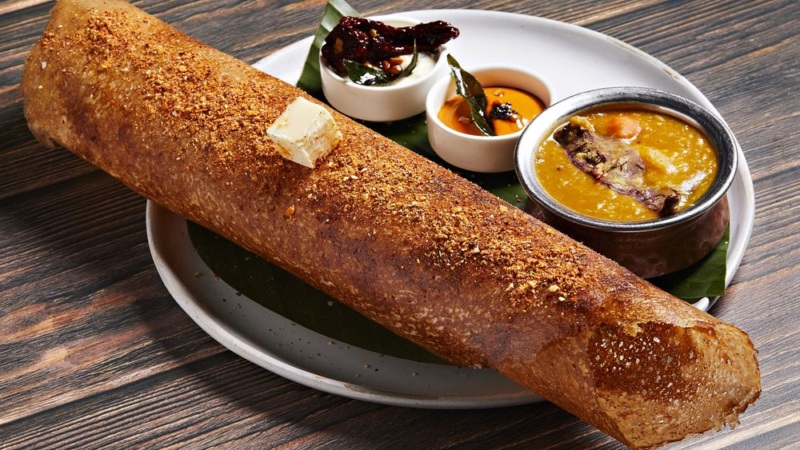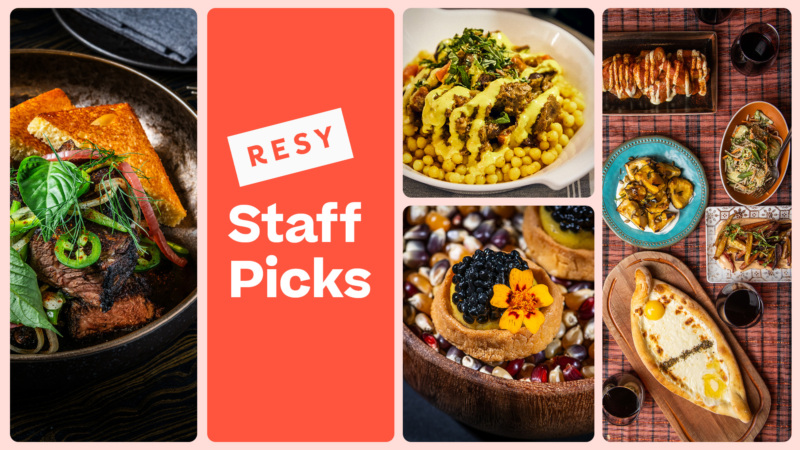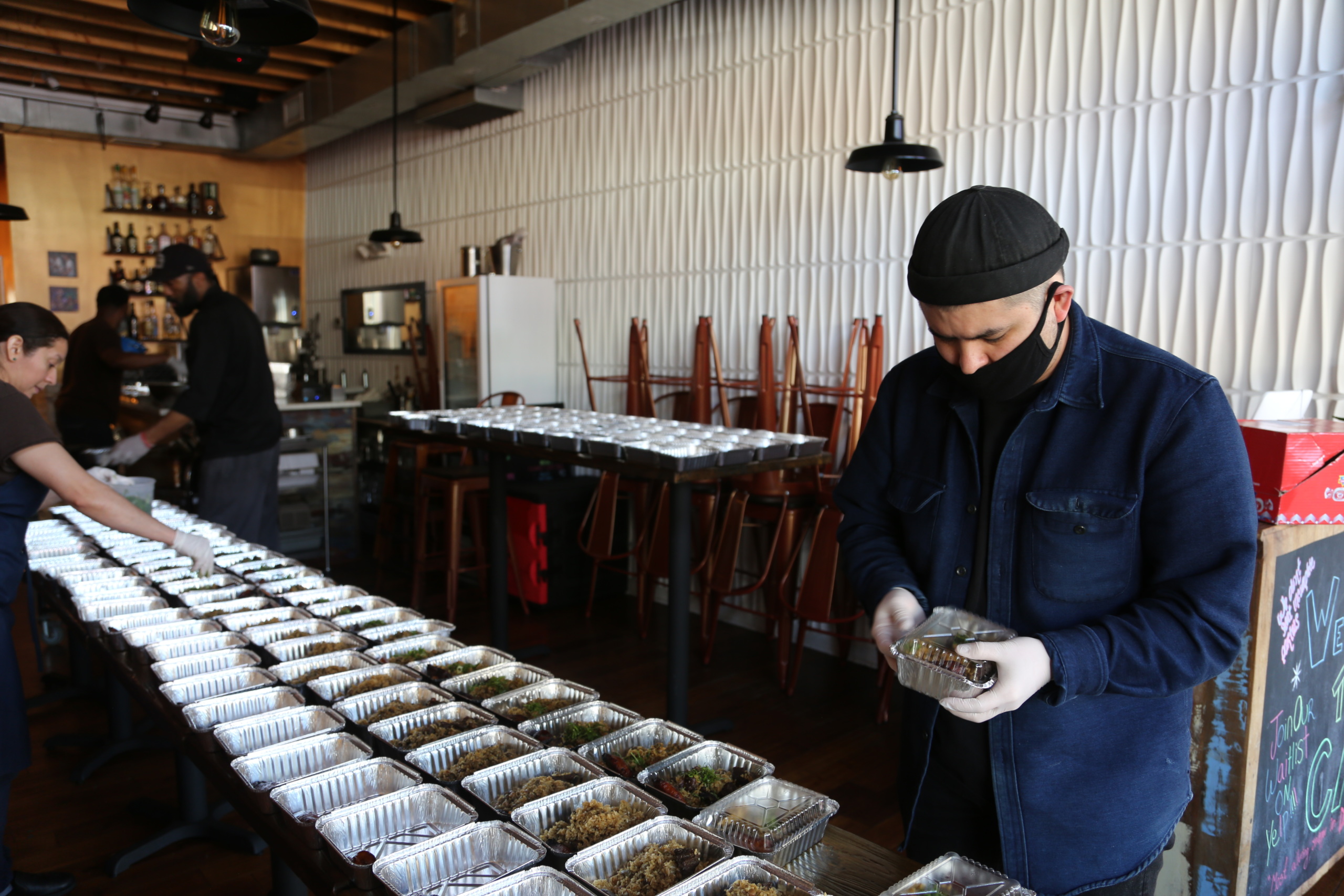
The D.C. Chef Trying to Revive Neighborhood Restaurants, One Donation at a Time
Erik Bruner-Yang isn’t waiting on the government’s help to save neighborhood restaurants. Following DC’s restaurant shutdown on March 16, the chef-restaurateur behind some of the city’s favorite restaurants — Maketto, ABC Pony, Spoken English, Brothers and Sisters — only had the seed of an idea that he thought might be able to help small businesses.
Now, several weeks later, he’s turned it into a reality, putting funds immediately into the hands of those small businesses who need it the most.
In the devastating wake of COVID-19, the survival of many independent restaurants is at risk. Navigating government loan applications and relief programs has proven to be challenging, if not infuriating, leaving the backbone of many communities endangered.
And that’s where Bruner-Yang’s crowdfunding initiative comes in. Named the Power of 10, it directly addresses two consequences of the forced restaurant closures: the community’s loss of jobs and access to food. The revitalization plan operates on simple math: For every $10,000 raised in donations, a restaurant is able to re-hire 10 full-time employees, which in turn can provide 1,000 free meals to any community in need — a scalable model that Bruner-Yang has shown can be replicated across the nation.
At first, Bruner-Yang came up with this model to keep his own businesses afloat. But while driving around his once-bustling, now-empty H Street neighborhood, something shifted.
“All I know how to do is work. That’s all I’ve ever done. But it would feel reckless to work only to try and save my business, and put a bunch of people’s lives in danger,” says Bruner-Yang. “I have resources and I have access, and I was like, I need to do something about it. So that’s when we converted our internal business model and decided to turn it into a charity platform.”
Inspired by José Andrés’ World Central Kitchen work and &pizza’s Hero Pie concept, Bruner-Yang launched the Power of 10 on March 26, starting with chef Peter Prime’s Cane, a Caribbean-inspired mom-and-pop shop in his H Street neighborhood, as well as two of his own restaurants, Maketto and ABC Pony. But rather than splitting the donations between all three restaurants, Bruner-Yang allocated the first round of funds directly to Cane.
“We’re able to have someone in our company solely focused on loan applications and keeping up with all the changing rules and laws and regulations, right?” explains Bruner-Yang. “But operations like Cane, they don’t have that luxury.”
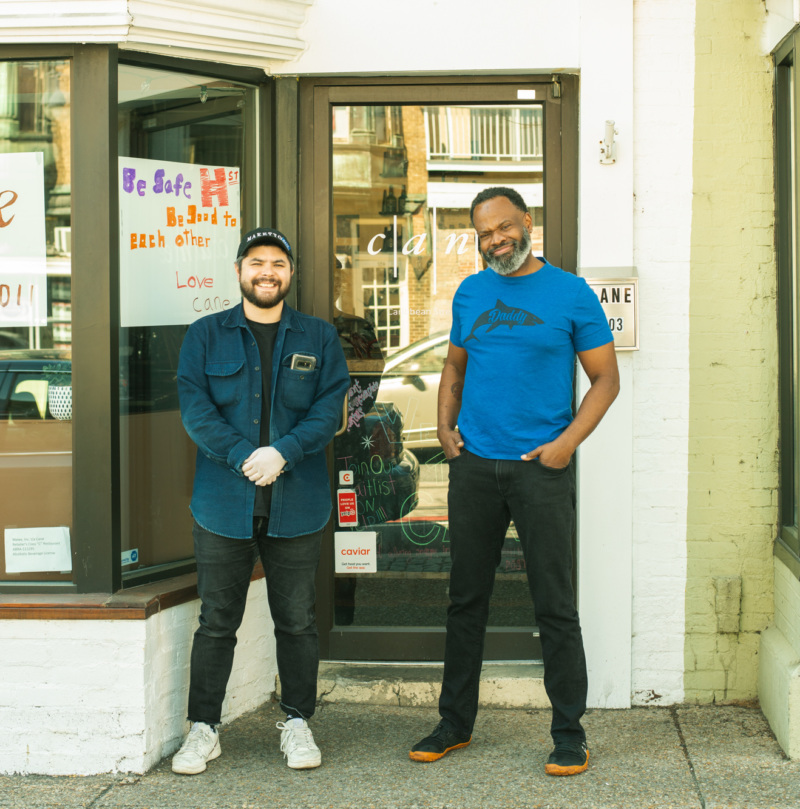

To Bruner-Yang, this sort of immediate relief not only keeps small businesses alive, but relieves unemployment resources while stimulating the local communities and providing them with their own safety nets.
Since launching, the Power of 10 has raised upwards of $70,000 in individual donations. Cane is now in its fourth week of operation, delivering 1,000 meals a week to Washington Hospital Center. Restaurateur Rose Previte’s Maydan and Compass Rose restaurants have also joined the initiative, alongside The Columbia Room’s sandwich pop-up, Get a Hero, Be a Hero. Each restaurant receives $10 per meal — covering the cost of ingredients and employees’ salaries — to provide fully-balanced meals to their local wards and others in need.
Together, the restaurants deliver 3,000 meals a week to nonprofits and vulnerable, underserved communities that have reached out, including the National Children’s Center, the DC Fire Department, Washington Hospital Central, and a network of homes for the elderly.
“If there’s been an ask, we try to make it work,” says Bruner-Yang.
On April 21, the Power of 10 officially debuted in Los Angeles, launching with Sushi Kiyosuzu, Olympic figure skater Mirai Nagasu’s family restaurant in Arcadia. “We had to pull their menu off their Yelp page. There’s no website, and they’re not gonna all of a sudden be on Caviar and Grubhub and posting stuff [on Instagram],” says Bruner-Yang. “Mirai understood it was a good opportunity for her parents and she wanted to give back to them and her community.”
In less than two weeks, the teams secured $30,000 in donations, helping the family-run restaurant operate for a month — and in turn, provide meals for the Methodist Hospital Foundation, Foothill Unity Center, and the Asian Youth Center.
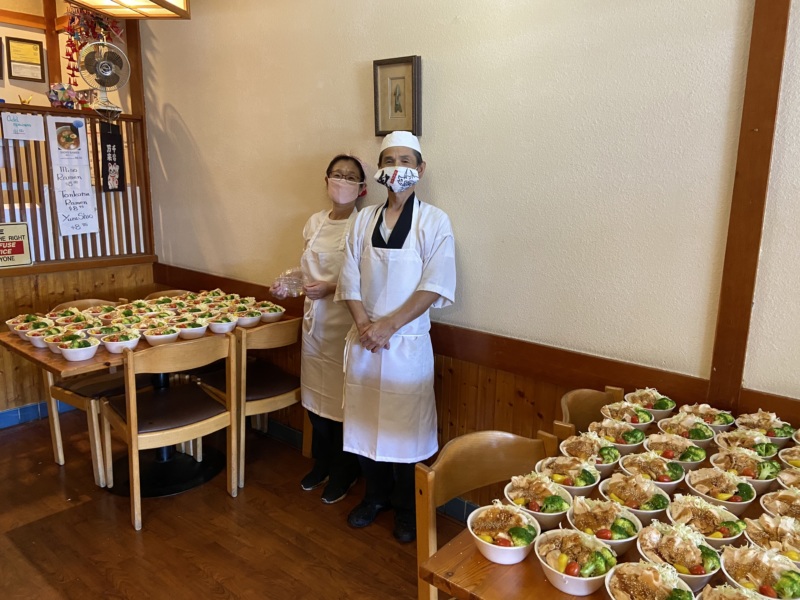

And in Charlotte, Burke Hospitality Group is starting its own chapter of Power of 10. After getting in touch with Bruner-Yang, the group successfully pitched the initiative to its state government, which procured a grant.
Bruner-Yang is trying to set up the Power of 10 for as long as the restaurant shutdown lasts. For him, the pandemic has only exposed the food insecurities and disparities the country has long faced, furthering the need for independent restaurant owners to create their own coalitions and safety nets.
But Bruner-Yang also sees positives coming out of this economic crisis.
“Maybe this forces us to have universal healthcare. Maybe this finally forces us to raise the federal minimum wage. Maybe it finally forces us to fix a lot of the things that are broken about this country,” he says.
And this pause has also allowed him and his team time to reevaluate their business.
“One thing I’ve been tossing around is eliminating the tipping model in our restaurants. We can still be a full-service restaurant, be financially stable, and able to provide staff better benefits and more equitable wages,” Bruner-Yang says. “It’s harder to do when you’re already in business, to change models… But now that you’ve been forced to close, it allows us all to rethink how we want to do business moving forward.”

